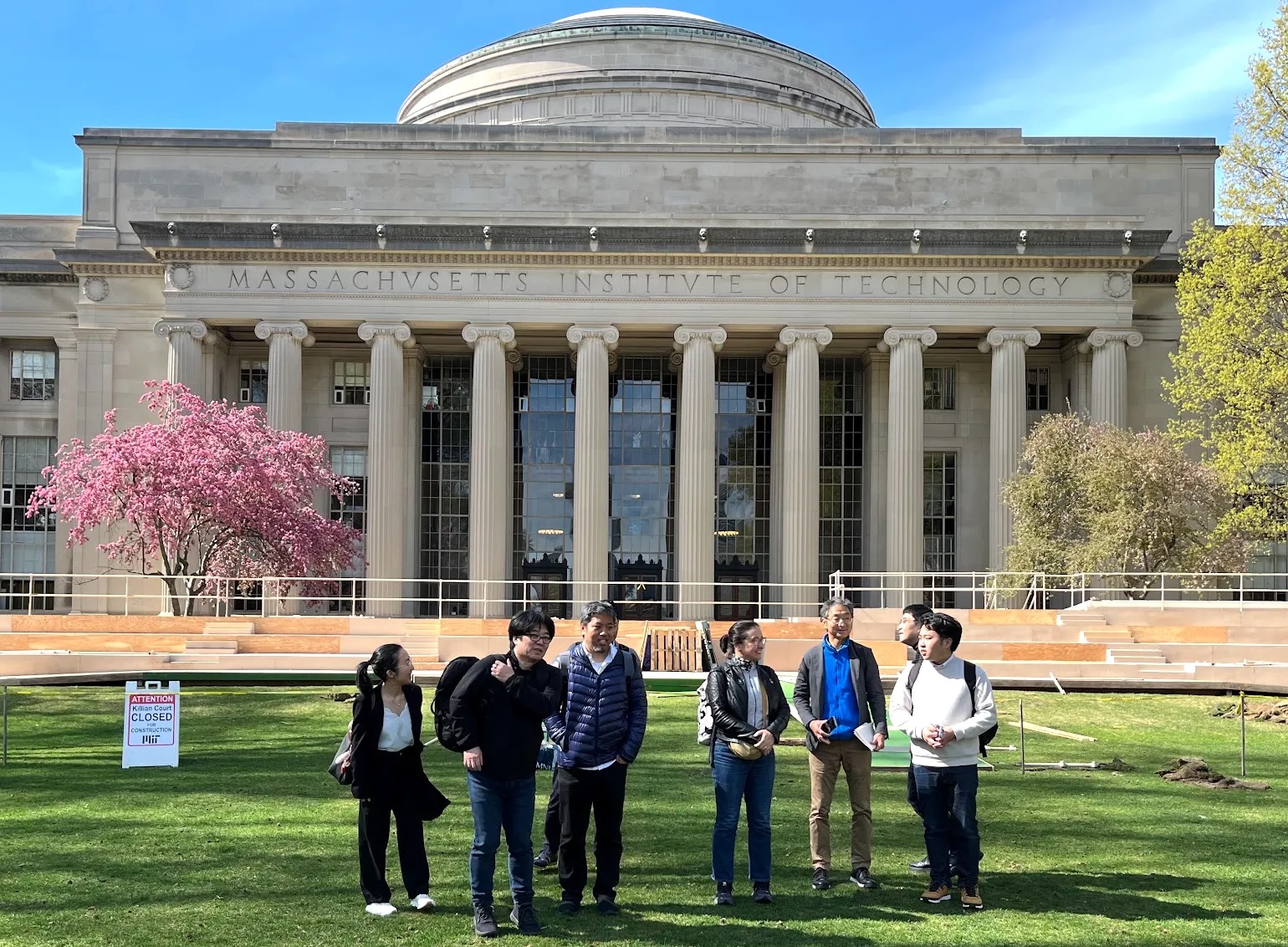(Original post on Medium by Sabrina Sasaki from Monozukuri Ventures)
After Deep Tech Forum 2024 series in Toronto, Pittsburgh and NYC (winter edition), Spring was a good time to catch up with a few selected hubs in the East Coast to follow up with deep tech ecosystems. As a half-year review, this recap brings together what I’ve seen in in this first semester of 2024.
As a first stop in Boston, where we co-hosted our first ever Monozukuri Hub Meetup in the US with the support of JETRO NY (J-Startup), we were able to gather over 12 Japanese corporations for a networking session. I arrived in the city one week before our event to get a sense of the local ecosystem in the Spring.
As Spring kicked off in Boston a bit later than in Japan, I had the chance to enjoy sakuras (cherry blossom trees) from Kyoto (in late March) to Boston (in late April) — not necessarily the best experience for someone suffering with severe hay fever!
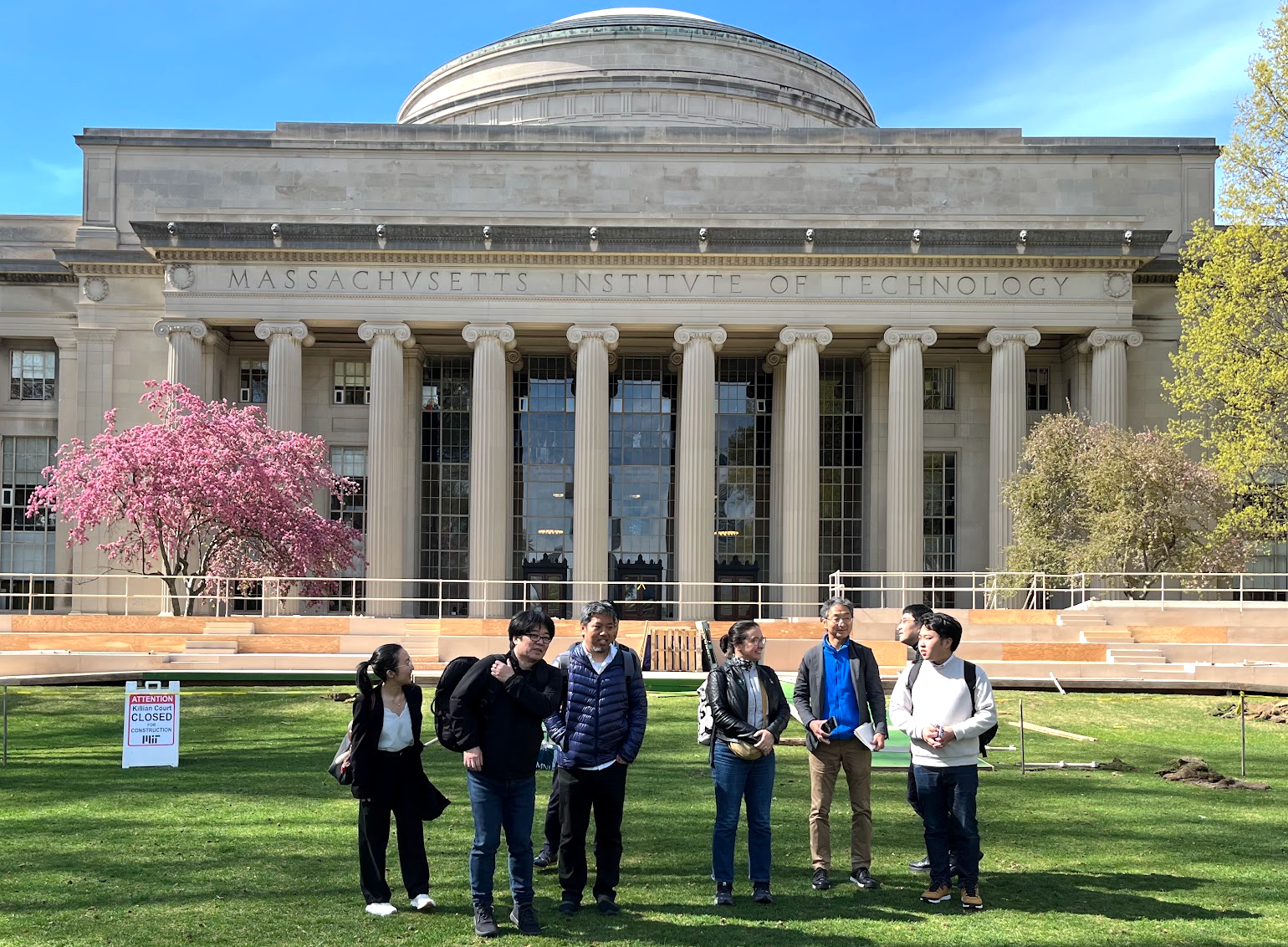
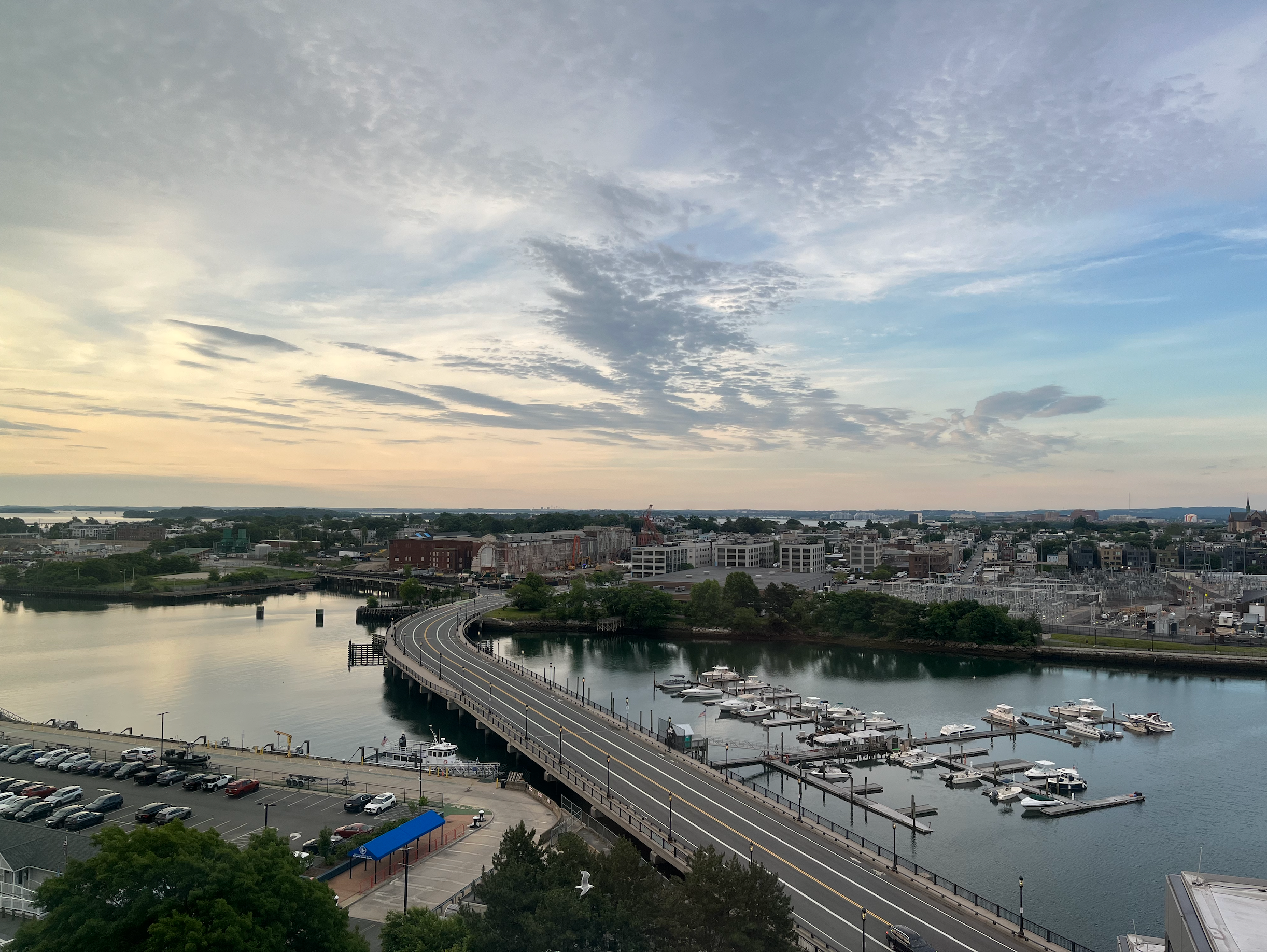
I landed in Boston straight from Japan, arriving when TechCrunch Early Stage took place. This type of industry broad event tends to attract generic investors with agnostic thesis, like in most hubs. But not in Boston!
- Early Stage Deep Tech Happy Hour: by AlleyCorp, Anzu Partners, Argon VC, Aurelia Foundry, Converge Ventures, Cybernetix Ventures, First Star Ventures, Glasswing Ventures, Hyperplane Ventures, and SkyRiver Ventures, a happy hour with deep tech founders, operators, and investors. It was one of the best networking events I’ve ever been to. Very curated specialized professionals with a vast expertise in the fields of robotics, AI, computer science, physics, chemistry and many engineering fields. Boston really has a best in class community, and most investors have been either founders or operators, with a different perspective on what it takes for a startup to succeed.
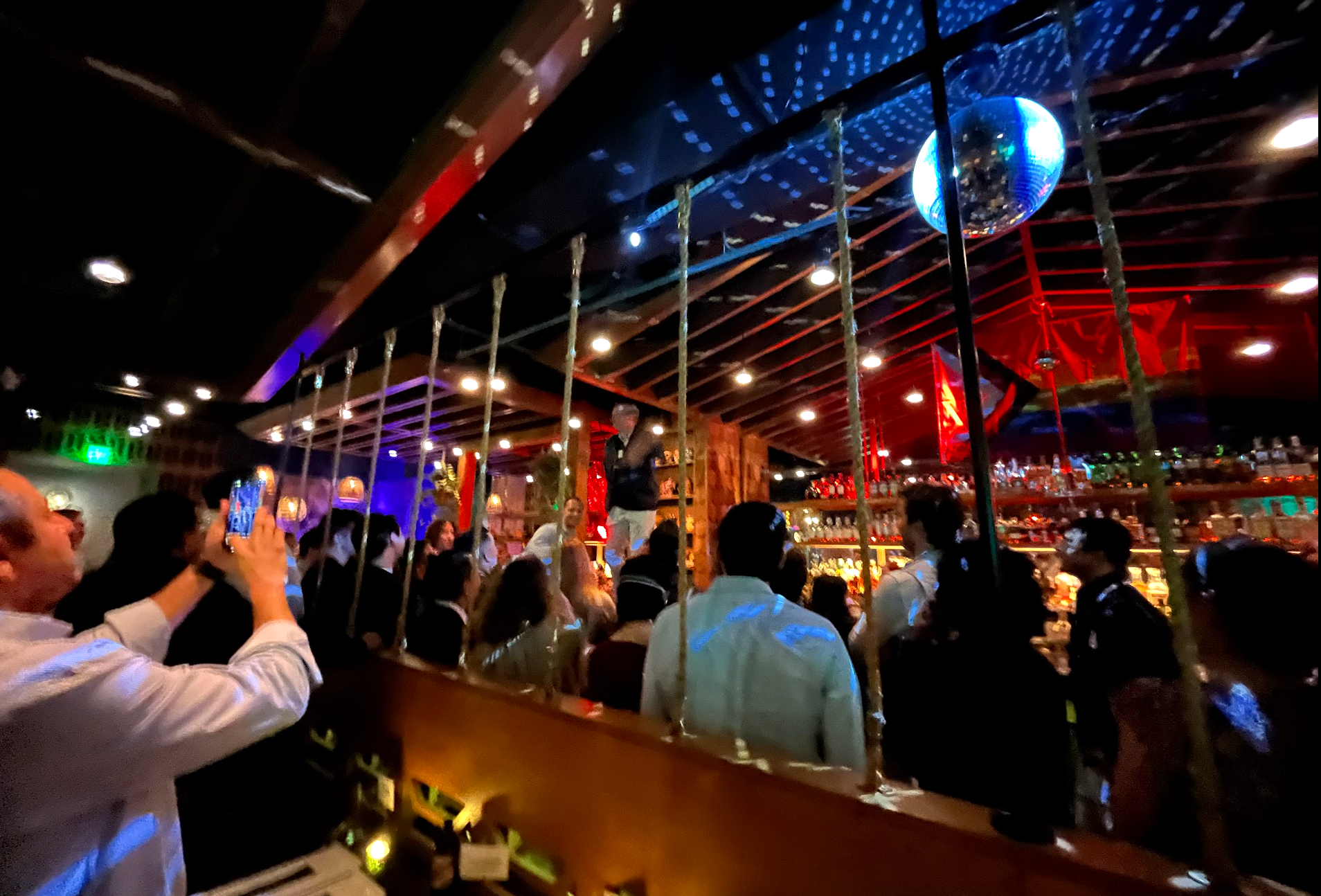

- HAX Deep Tech Boston: first ever HAX meetup in Boston was hosted at the Engine (MIT-related hub). HAX, a hardtech accelerator previously based out of Shenzhen, China is now positioned as the ‘startup development program in Newark, NJ from SOSV Fund to support hard tech founders working on health and climate startups’. It’s not a concidence that SOSV is interested in the Boston region, as many of the key verticals are related to the hub. IndieBio program is also specialized in biotech startups with offices in NYC and SF, and brought their team to Boston to meet students, engineers, scientists and climate leaders.
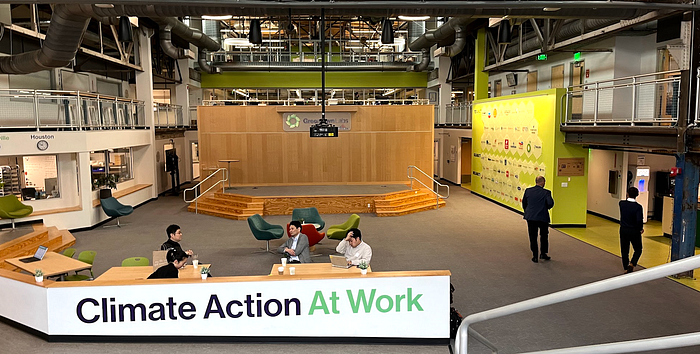
Robotics Summit Expo
As warm up for the Robotics Summit, Device Talks & Digital Transformation, we co-hosted Monozukuri Hub: JETRO/J-BRIDGE CONNECTS for Global Robotics Innovation in Boston focused on attendees in the Robotics, AI & Automation in Manufacturing!
Over 120 attendees, including over 12 Japanese corporations, joined our initiative supported by Cybernetix Ventures and Pittsburgh Robotics Network, both hubs relevant for the emerging technologies in the startup ecosystem.



Robotics Invest by Cybernetix Ventures
Robotics Invest 2024 was definitely one of the most relevant opportunities to meet the top investors, advisors, operators, customers and founders in the ecosystem. The two day event featured sessions on investment trends, AI’s impact on robotics, climate tech, and the robotics acquisition landscape.
Keynote speakers included famous local entrepreneur celebrities who attracted a global audience of fans and followers.
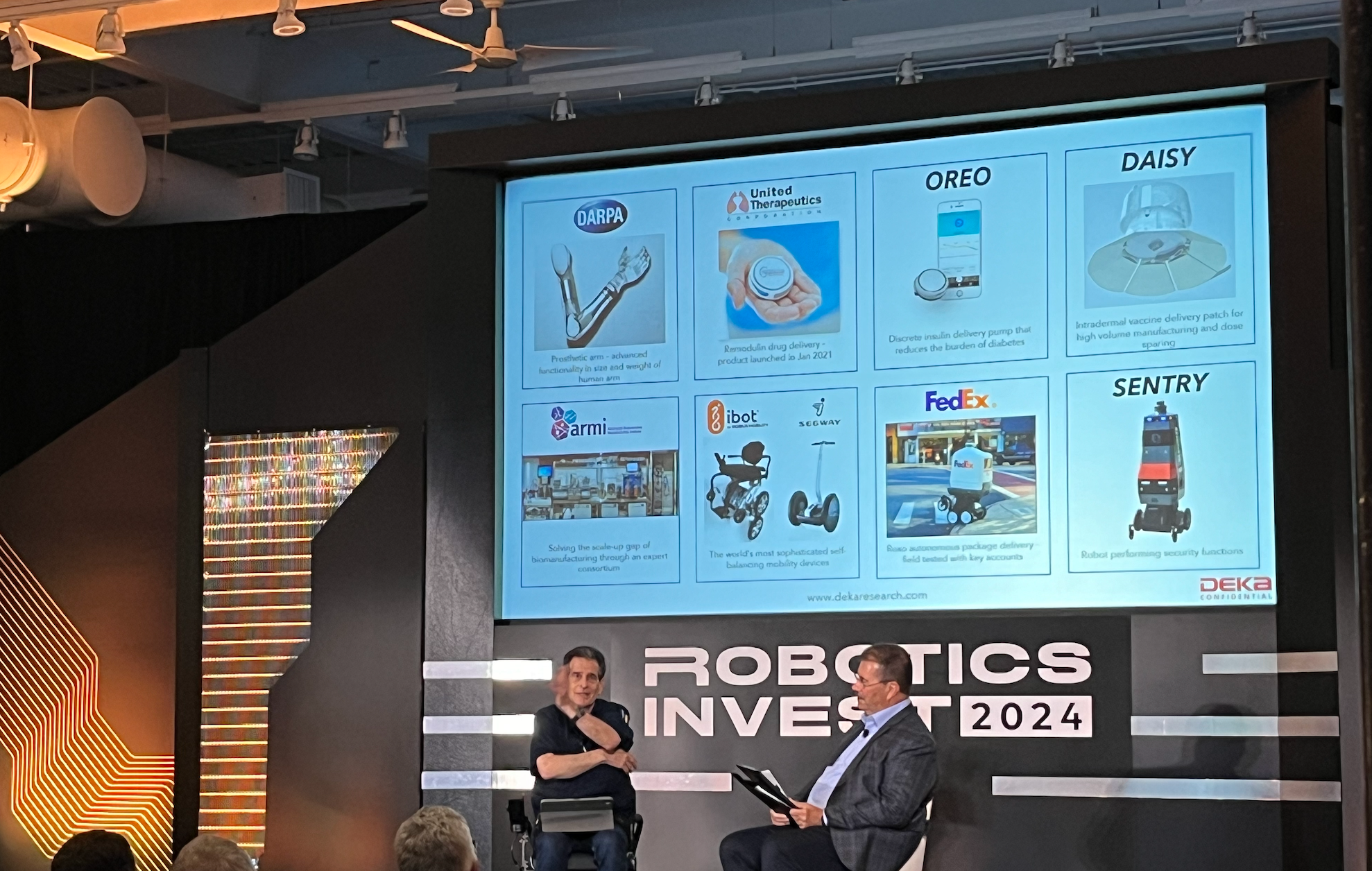
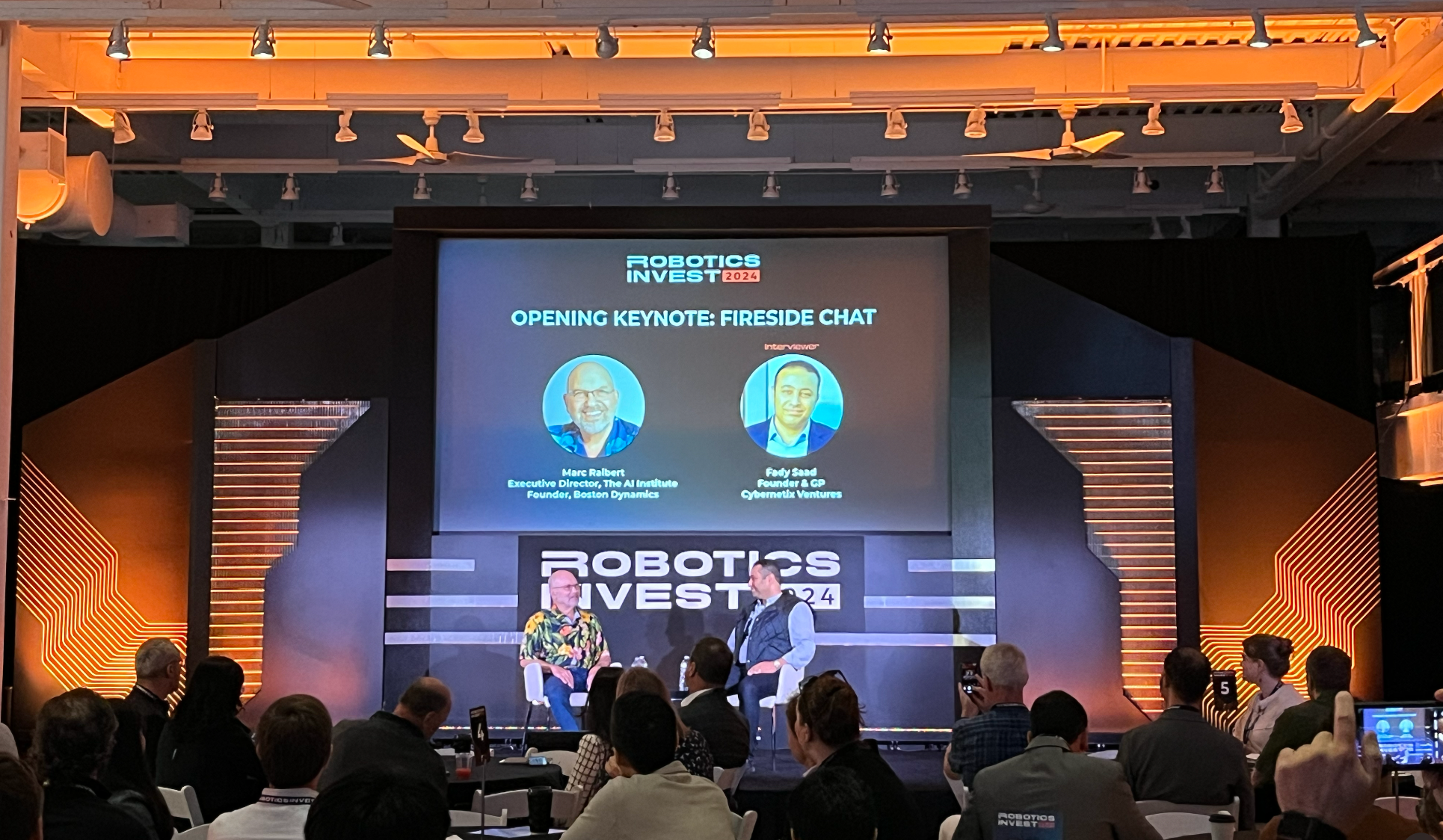
- Day one: Dean Kamen, serial entrepreneur, inventor and philantropist, invention of the Segway and iBOT, world-known products in the mobility and robotics space.
https://cdn.embedly.com/widgets/media.html?src=https%3A%2F%2Fwww.youtube.com%2Fembed%2FaQykTmY-LJ4%3Ffeature%3Doembed&display_name=YouTube&url=https%3A%2F%2Fwww.youtube.com%2Fwatch%3Fv%3DaQykTmY-LJ4&image=https%3A%2F%2Fi.ytimg.com%2Fvi%2FaQykTmY-LJ4%2Fhqdefault.jpg&key=a19fcc184b9711e1b4764040d3dc5c07&type=text%2Fhtml&schema=youtube
- Day two: Marc Raibert, Boston Dynamics founder who started as a professor of Electrical Engineering and Computer Science at MIT and an associate professor of Computer Science and Robotics at Carnegie Mellon University. Not a coincidence that both schools are globally recognized as top institutions in the fields of robotics and automation as hubs for innovation!
https://cdn.embedly.com/widgets/media.html?src=https%3A%2F%2Fwww.youtube.com%2Fembed%2FMG4PPkCyJig&display_name=YouTube&url=https%3A%2F%2Fwww.youtube.com%2Fwatch%3Fv%3DMG4PPkCyJig&image=http%3A%2F%2Fi.ytimg.com%2Fvi%2FMG4PPkCyJig%2Fhqdefault.jpg&key=a19fcc184b9711e1b4764040d3dc5c07&type=text%2Fhtml&schema=youtube
Roundtables on financing, scaling strategies, and spinning out companies from academia, as well as networking opportunities and 1:1 curated meetings. The event aims to provide insights into the future of robotics and foster innovation and collaboration in the industry.
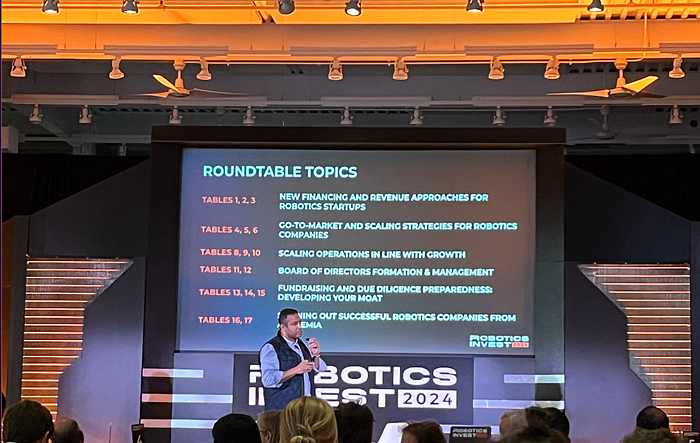
As of today, the most relevant industry curated events I joined have been by far these ones in Boston.
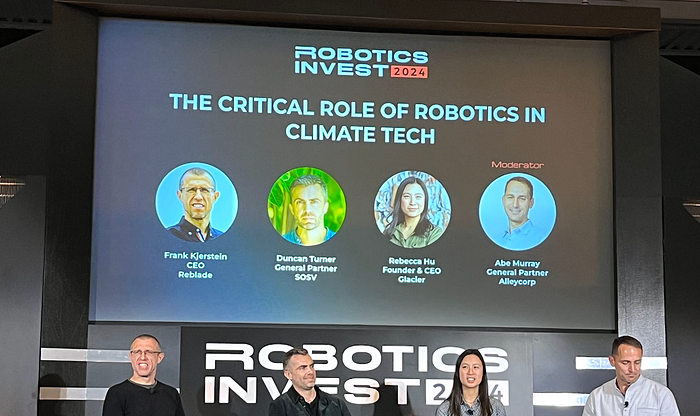
Why do we focus on the East Coast/Great Lakes areas of North America?
Part of our role as an institutional VC specialized in early stage deep tech startup startups has been to help Japanese corporations create better strategies for their Open Innovation journey, with frameworks that might guide them on more strategic CVC investments towards concrete M&A plans.
Manufacturing, in that sense, is one the key industries that Japanese corporations could stand out in the new context between “slowbalisation” and deglobalization, when geopolitical concerns come up while the green transition kicks off.
And the recent agreement signed in April 2024 by President Biden during his visit to Japan marks a significant milestone in this strategic bilateral alliance between the US and Japan, particularly for the manufacturing sector, with a shared commitment to tech advancement, innovation, and global competitiveness related to deep tech in manufacturing, where physical products are built to allow AI and other added services.
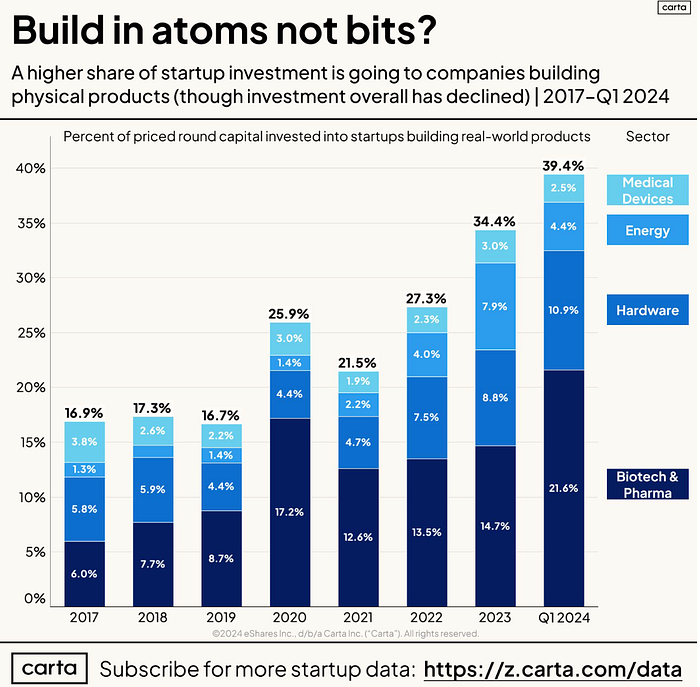
But the reality is that with limited teams actively engaged in America (mainly in the West Coast) and with a vast territory to be covered from Coast to Coast, Japanese current resources haven’t been able to achieve their goals when it comes to working alongside startups. After meeting so many expats in the US representing their Japanese HQ, I came up with this conclusion from their concerns and questions which seem like they’re unaware of US local startup hubs potential for engagements in their own industry. Adding to that the Japanese yen’s historical depreciation, the costs for Japanese companies to maintain their business overseas became higher than their International budget allows them to do , adding a new layer of challenges to Japanese CVC offices operating in the US.
Industrial hubs have been historically concentrated in the East Coast/Midwest regions of the US, where Japanese corporations have limited access to startup hubs with a pace of advanced manufacturing innovations that have been hard to follow up with!
So Why Is Boston A Top Global Deep Tech Hub For Robotics, AI, And Automation In Manufacturing?
Among the top 5 US cities for startups, Boston has been a constant and relevant hub when it comes to deep tech early stage funding (pre-seed/seed), with Friends & Family, Angel Groups and other microfunds, as latest data shared by Carta’s Head of Insights Peter Walker.
Another report from Carta shows the growth of funding to hardtech startups with physical devices in the last 5 years, with Boston as a #3 key startup ecosystem in which many companies are building products related to the robotics industry!
- Top 2 in Energy and Biotech
- Top 3 in Hardware & Medical Devices (#3 in Healthtech)


Boston, a city celebrated for its rich history and academic excellence, has also emerged as a global leader in several cutting-edge industries including robotics, artificial intelligence (AI), and automation in key deep tech segments related to manufacturing. This transformation is underpinned by an unique ecosystem of innovation, academic institutions, and specialized hubs that support the transition of advanced research into real-world applications.

A very unique set of ecosystem players in the deep tech space coming from everywhere in the US and even from other countries that like myself also think of Boston as a key place for the innovations of the future.
At the heart of Boston’s surge in advanced manufacturing technologies is of course its dense concentration of universities and research institutions, which its undeniable roots at MIT, Harvard, Tufts and Boston University, among others, that are not only feeding the industry with fresh talent but are also training pioneer leaders in cutting-edge research.
MIT’s Computer Science and Artificial Intelligence Laboratory (CSAIL): at the forefront of robotics and AI research, driving developments that are directly applicable to manufacturing.
Sustainability and Automation in manufacturing isn’t just about robotics; it encompasses integrated systems that can autonomously monitor and control production processes. Boston’s tech companies are at the vanguard of creating such systems, enabling higher throughput with less waste and lower costs. Moreover, the focus on sustainable and green manufacturing processes, powered by automated solutions, is positioning Boston as a leader in responsible industrial practices.

